
Matthew Wright 7am - 10am
18 November 2019, 08:01
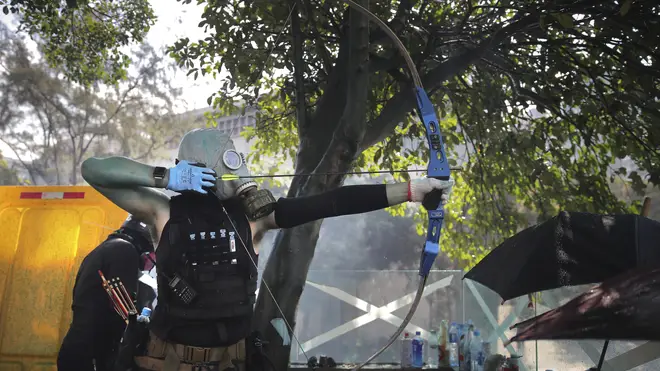
Police in Hong Kong have fired tear gas and water cannon as they moved against pro-democracy protestors occupying a university campus.
Anti-government protesters barricaded themselves inside Hong Kong Polytechnic University for days, fighting back with petrol bombs and bows and arrows which saw officers threatening to use live ammunition.
Police surrounded the area on Sunday night and began moving in after issuing an ultimatum for people to leave the area. The crowd wore raincoats and carried umbrellas to shield themselves.
Dozens of protesters tried to leave after sunrise but turned back as police fired tear gas and rubber bullets.
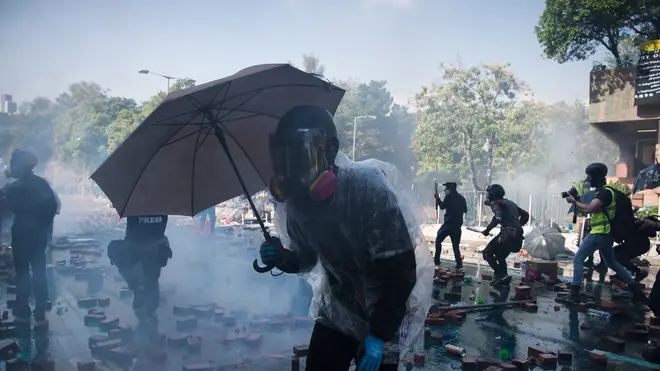
Riot officers broke in before dawn as fires raged inside and outside the school.
The police said tear gas was fired because "a large group of masked rioters...suddenly charged at cordons".
A stand-off erupts between protesters and police near Diocesan Girls School in Jordan. Protesters had earlier retreated slightly after rounds of tear gas were fired
— SCMP Hong Kong (@SCMPHongKong) November 18, 2019
Video: SCMP/Lilian Cheng pic.twitter.com/QuER7JfnWv
On Monday the Hong Kong High Court ruled a ban made in October against masks and face coverings was "unconstitutional."
The court said the ban went “further than is reasonably necessary”, and was a “restriction on fundamental rights”.
The ban on face coverings failed a proportionality. test Though the authority said it was “rationally connected to legitimate societal aims”, it went too far.
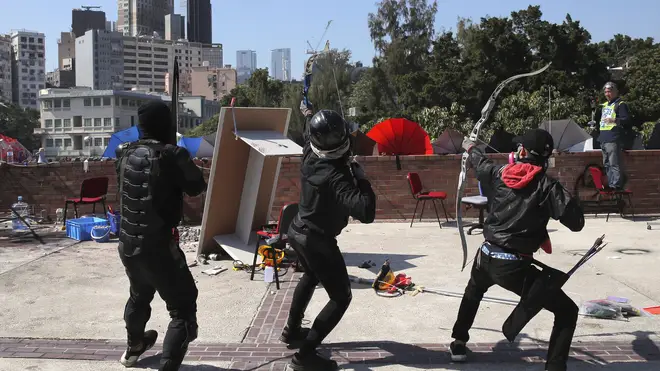
Earlier in the day, protesters used bows and arrows, and one arrow struck a media liaison officer in the calf.
Photos on the department's Facebook page show the arrow sticking out of the back of the officer's leg through his trousers.
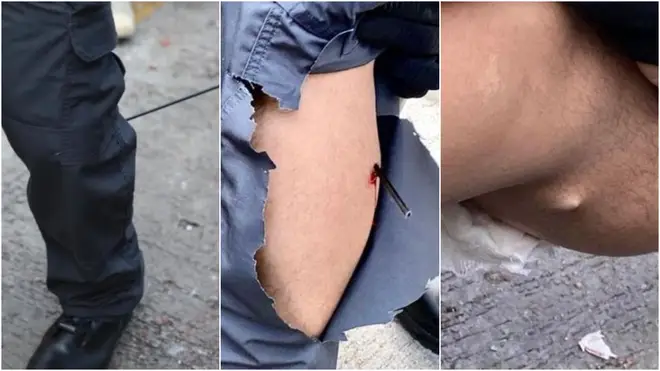
As riot police moved in from all sides, some protesters retreated inside the university. Others set fires on bridges leading to it.
A large blaze burned along much of a long footbridge that connects a train station to the campus over the approach to the Cross-Harbour Tunnel, a major road under Hong Kong's harbour that has been blocked by the protesters for days.
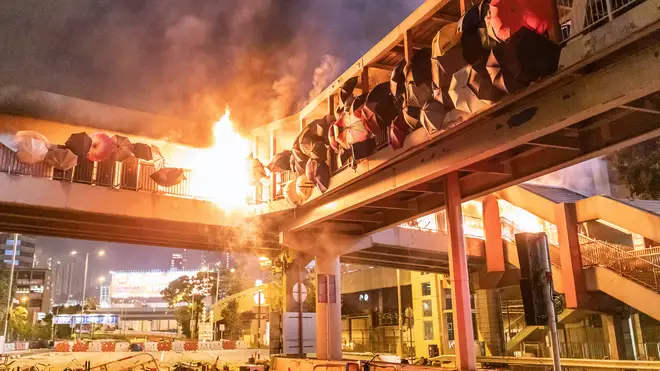
Police have arrested more than 3,500 people since the movement began in June.
The protests began over a proposed law that would have allowed criminal suspects to be extradited to mainland China, where they could face opaque and politically sensitive trials.
Activists say the bill was an erosion in Hong Kong's autonomy and civic freedoms, which China promised would be maintained for 50 years under a "one nation, two systems" principle when the former British colony returned to Chinese control in 1997.